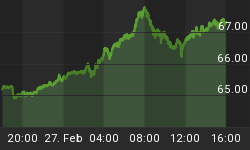Recent studies are showing that more and more Americans would rather choose to rent than buy a home due to the high cost and financial uncertainty, but even rent is proving to be a nearly insurmountable challenge these days. In the past few years, the U.S. has seen a significant change in the balance between renters and homeowners. Late last year’s study by ValuePenguin showed millennial homeownership rates have fallen 20% in the past decade.
Millennials, who number some 80 million people in the U.S. alone, have emerged as the dominant force in the housing market--just in the way most real estate agents would like. At their current rate of savings, only 25% of millennial renters will be ready to fork over a 10% down payment on a median-priced starter home in the next five years.
And it’s not just a simple lack of effort to save money: It’s mounting student debt, delayed marriages and overall affordability of housing in certain areas.
An Urban Institute report from July suggests that Millennials are getting shut out of the housing to such an extent that the homeownership rate among this generation is 8% lower than the two preceding generations.
Housing prices have been climbing steadily. First-time homebuyers are paying nearly 40% more than they were four decades ago. As a result, some 12% of millennial renters plan to keep renting forever. The majority of around 70% blamed this on the inability to afford a home, plain and simple.
However, in the past few years, it appears that even renting is becoming a major burden.
Related: Brace For A Year Of Crisis And Upheaval
A new study by Harvard University claims that nearly 21 million American renter households are spending 30% of their income on housing expenses such as rent and utilities.
Of the larger group, 10.9 million renters were reported as severely burdened, spending over 50% of their income on housing.
“…The share of middle-income renters paying more than 30 percent of income for housing has steadily risen. The largest jump has been among renters earning $30,000–44,999 annually, with their cost-burdened share up 5.4 percentage points in 2011–2018, to 55.7 percent,” the study found.
Moreover, there were 6 million more “cost-burdened renters” in 2018 than in 2001.
According to RentCafe's year-end rent report for 2019, the national average rent saw another year of strong growth, leveling off in December.
All evidence suggests that the average national rent will continue moving higher - despite all official gauges of inflation reflecting little or no inflation. And popular sun-belt cities such as Phoenix and Las Vegas are the biggest drivers of high rents, assuming that role from Brooklyn and many places in California.
Nationally, the average apartment rent climbed to $1,483 in December, a 3% year-on-year increase. On average, renters are currently paying $43 a more per month than they were at the end of 2018.
Manhattan remained the priciest rental market in the country in 2019, with average rent at year-end of $4,211. San Francisco came in second at $3,688, and Boston third at $3,438. And exactly those cities are attracting Millennial renters.
That is why there is a surge of startups offering cheaper renting options, including the pods.
Startups like PodShare and Eddy are making up for the shortage of affordable housing in cities like San Francisco and Los Angeles by renting dorm-style lodging and providing tenants a co-living experience. Prices vary slightly at different sites, but it averages between $800 and $1,400 a month.
So, this is what the new American dream looks like: renting forever or settling for a pod.
By Josh Owens for Oilprice.com
More Top Reads From Safehaven.com:
















